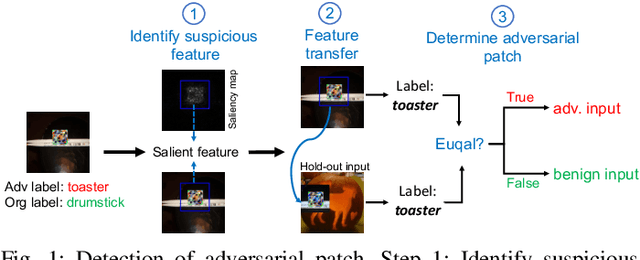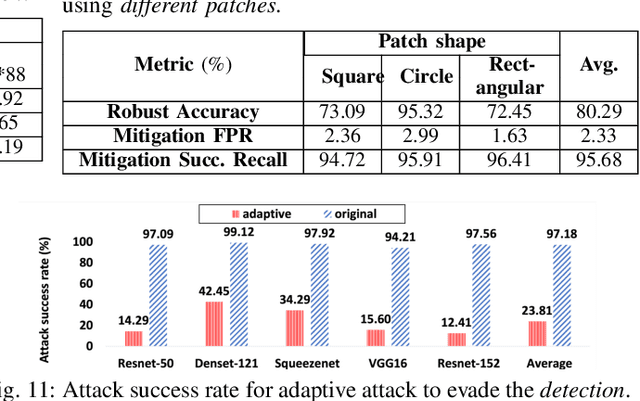Turning Your Strength against You: Detecting and Mitigating Robust and Universal Adversarial Patch Attack
Paper and Code
Aug 11, 2021



Adversarial patch attack against image classification deep neural networks (DNNs), in which the attacker can inject arbitrary distortions within a bounded region of an image, is able to generate adversarial perturbations that are robust (i.e., remain adversarial in physical world) and universal (i.e., remain adversarial on any input). It is thus important to detect and mitigate such attack to ensure the security of DNNs. This work proposes Jujutsu, a technique to detect and mitigate robust and universal adversarial patch attack. Jujutsu leverages the universal property of the patch attack for detection. It uses explainable AI technique to identify suspicious features that are potentially malicious, and verify their maliciousness by transplanting the suspicious features to new images. An adversarial patch continues to exhibit the malicious behavior on the new images and thus can be detected based on prediction consistency. Jujutsu leverages the localized nature of the patch attack for mitigation, by randomly masking the suspicious features to "remove" adversarial perturbations. However, the network might fail to classify the images as some of the contents are removed (masked). Therefore, Jujutsu uses image inpainting for synthesizing alternative contents from the pixels that are masked, which can reconstruct the "clean" image for correct prediction. We evaluate Jujutsu on five DNNs on two datasets, and show that Jujutsu achieves superior performance and significantly outperforms existing techniques. Jujutsu can further defend against various variants of the basic attack, including 1) physical-world attack; 2) attacks that target diverse classes; 3) attacks that use patches in different shapes and 4) adaptive attacks.
 Add to Chrome
Add to Chrome Add to Firefox
Add to Firefox Add to Edge
Add to Edge